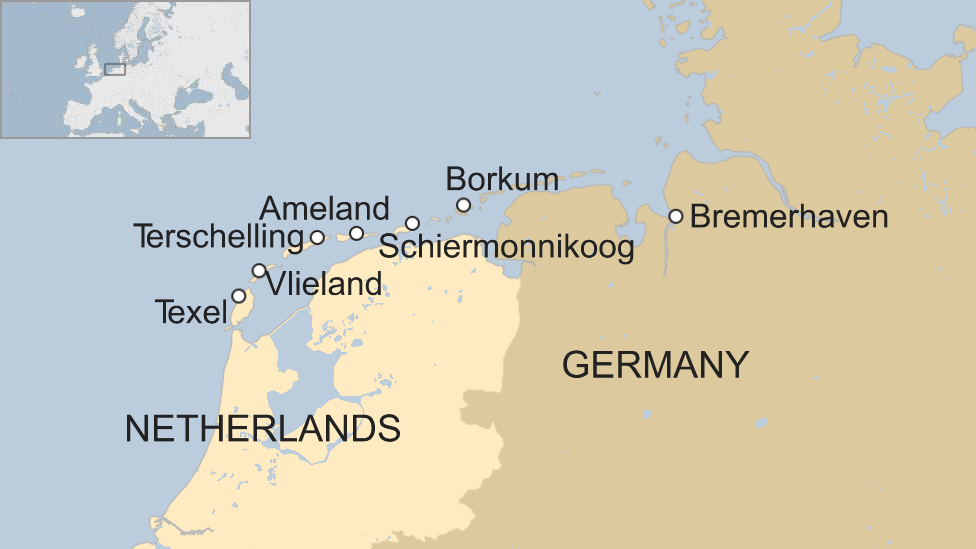Dutch mystery of '20,000 seabird deaths' on coast
- Published
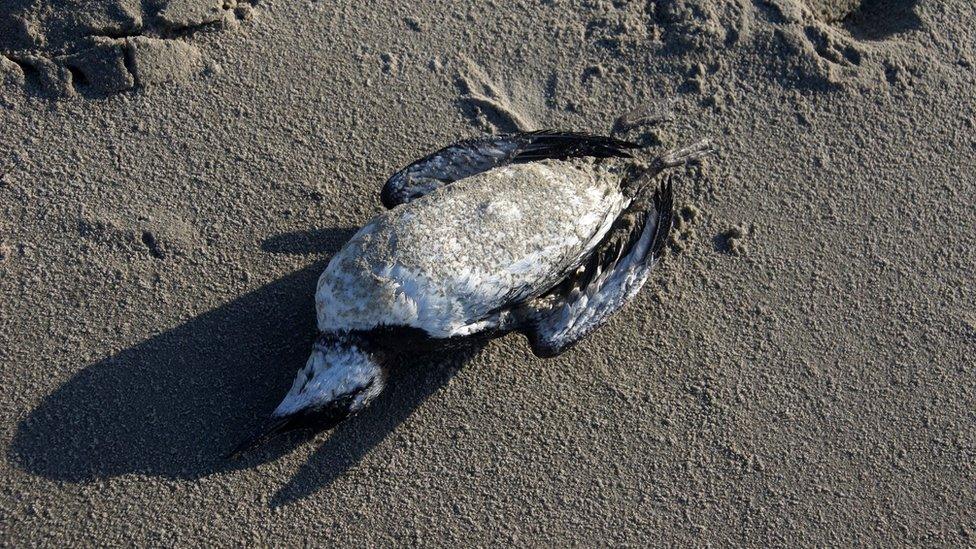
The dead guillemots have been washing up along 300km of Dutch coastline
Scientists are trying to find out why some 20,000 guillemots have died in recent weeks along the Dutch coast.
The birds were all emaciated and there are fears they may have been victims of a spill from the MSC Zoe container ship, from which some 345 containers fell in the sea during a storm.
"There's no smoking gun, but we're looking into it," says Mardik Leopold, who is investigating the deaths.
Chemicals may be to blame as most plastics are hard to ingest, he says.
Hours after the containers fell off the MSC Zoe in a storm, they started washing up on islands off the Dutch north coast on 2 January, spilling their contents of children's toys, furniture and televisions on to the beaches.
A bag of peroxide powder was also found.
Footage filmed by the Dutch coastguard shows precariously balanced containers on board the MSC Zoe.
Why were so many birds affected?
Mardik Leopold, a seabird expert from Wageningen University, said the figure of 20,000 dead guillemots was based on educated guesswork.
"That's based on the average trending rate of one guillemot per kilometre of beach per day in the Netherlands with 300km [186 miles] available. That's 10,000 birds," he told the BBC. A similar number would have been left in the sea, he added.
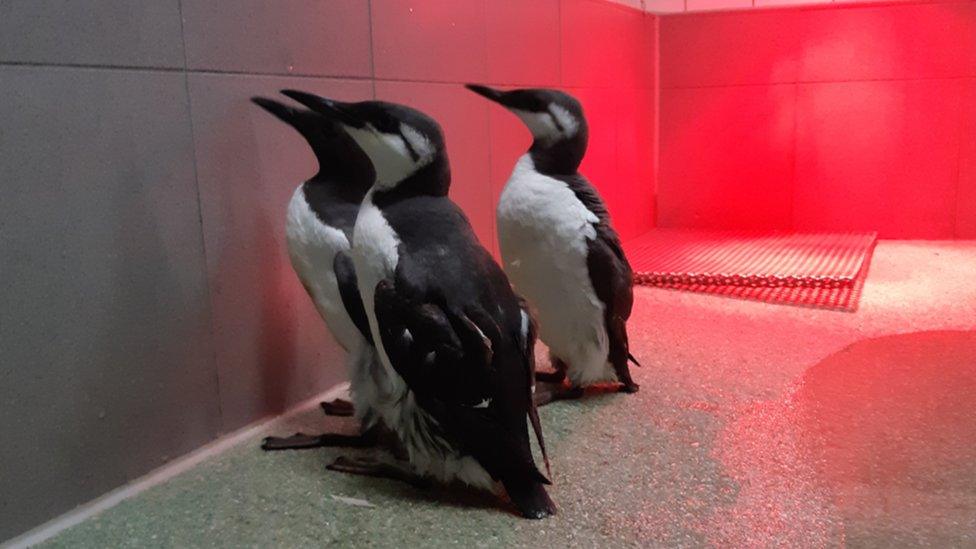
Some of the survivors are being nursed back to health at the Fûgelhelling centre
Although he is keeping an open mind, he points out that the birds began washing up at the time of the container spill. Bad weather can also affect a guillemot's access to food, but Mr Leopold believes the problem would then not have been confined to the Dutch coast.
While the guillemots may have swallowed plastic pellets, a spill of paraffin or palm oil was perhaps more likely. The island of Terschelling, where much of the MSC Zoe debris washed up, has also seen paraffin appear on its beaches.
On Wednesday, Dutch authorities said that at least 345 containers had fallen off the ship, 54 more than first thought.
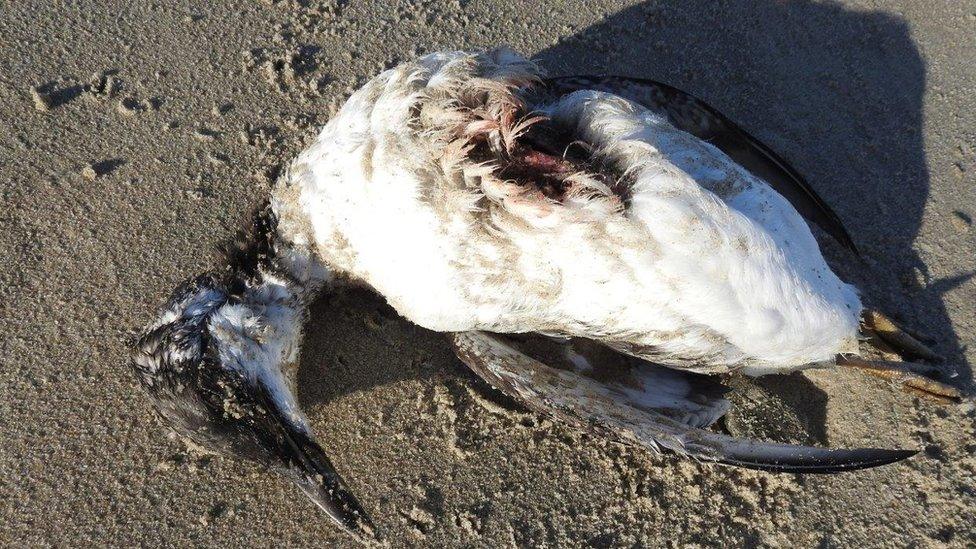
Dr Leopold found this guillemot on a beach on the island of Texel this week
Post-mortem examinations will be carried out on 100 of the birds to assess what caused their deaths.
How many have survived?
Dozens of guillemots have been rescued and are being cared for in a number of centres, where many are being fed by tube as they are so weak.
At Uretep in the north of the Netherlands, 11 guillemots are being nursed back to health.
"We have washed seven of them but the other four need to gain weight before we can give them a wash," says Hetty Sinnema from the Fûgelhelling centre.
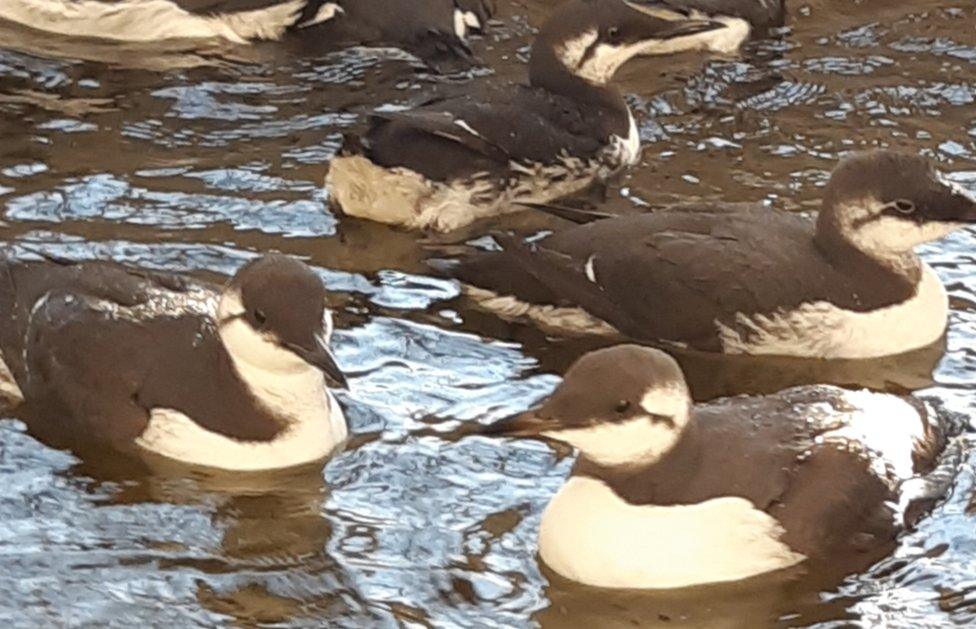
The hope eventually is to return the guillemots to the sea when they are strong enough
She says the problem lies in their intestines but believes it is too early to blame the sea container spill for the disaster.
"We tube-feed them with a lot of minerals, energy powder and fish. They now weigh around 600g but they need to be at least 900g before they are strong enough to be washed."
The surviving birds have a long journey to recovery but ultimately the centre hopes they can be returned to the sea.
